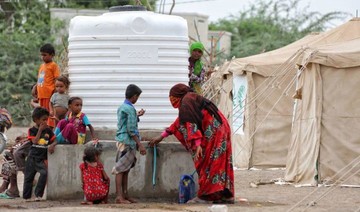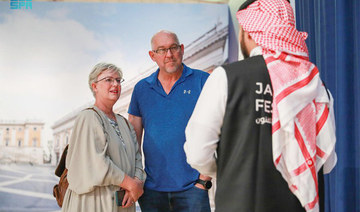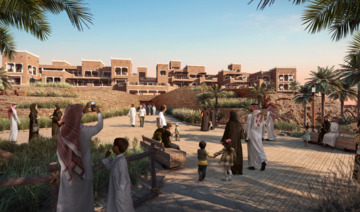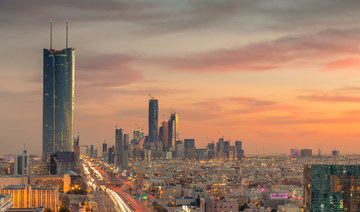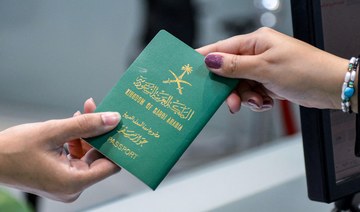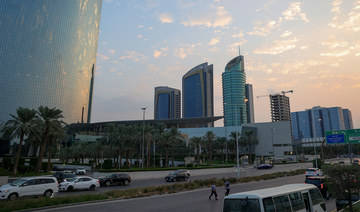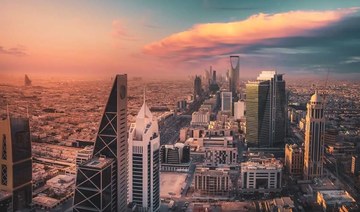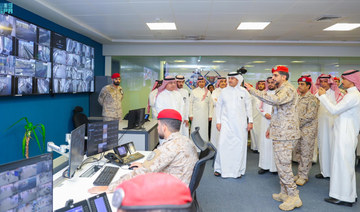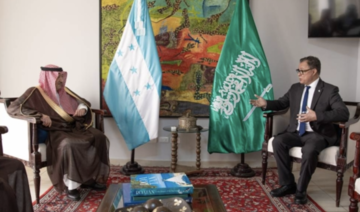JEDDAH/RIYADH: The King Salman Humanitarian Aid and Relief Center (KSRelief) is continuing to provide health services to Yemeni patients by supporting Al-Salam Hospital in Saada governorate and the Saudi Hospital in Hajjah governorate.
The center has completed supplying the two hospitals with medical equipment and supplies and providing all health services, under the directions of King Salman and Crown Prince Mohammed bin Salman.
Abdulmajeed Al-Humaydhi, a spokesman at the center, said on Tuesday: “The KSRelief provides essential medical equipment and supplies to hospitals and other health care facilities throughout Yemen, providing invaluable assistance to the country’s health sector.”
The KSRelief is continuing to support medical services for Yemeni patients at Al-Salam hospital in Saada and Al Saudi hospital in Hajjah, he added.
A report from the center on the first half of 2018 said that at Al-Salam Hospital 391,171 were treated as outpatients and 8,689 were hospitalized. It carried out 2,990 surgeries, 30,928 x-rays, 271,708 laboratory tests and issued 284,616 prescriptions.
At the Saudi Hospital 218,725 people visited outpatient clinics while 3,792 patients were hospitalized. It carried out 3,850 surgical operations, 24,975 x-rays, 215,755 laboratory tests and 222,470 prescriptions.
Al-Salam Hospital was established in 1982, at the expense of Saudi Arabia, and equipped with the most modern medical equipment. An annual budget was allocated so that the hospital was able to offer high-quality medical services, surgical operations and free medication throughout the governate.
The hospital demonstrates the decades-long strong and solid ties between the Kingdom and Yemen.
Al-Salam Hospital is the only hospital providing services for Saada and the neighboring governorates of Amran and Al-Jawf. It has 170 beds and treats more than 2,151 patients a day.
The Saudi Hospital, which was established in 1996, provides treatment and medication to all people in the governorate. It is considered one of the most important and best-equipped medical facilities in Hajjah.
The hospital includes an intensive care unit, emergency rooms and clinics and has 150 beds.
The support comes within the diverse programs provided by the Kingdom through the KSRelief center to alleviate the suffering of Yemeni people.
Last week a medical team from the center visited Marib to investigate how to implement the initiative of King Salman for establishing specialized medical centers for critical cases and diseases facing the people and to establish a cardiac center in Marib.
KSRelief signed three executive agreements in July to provide medical treatment at private hospitals in Aden and Taiz for wounded and injured Yemenis and help provide comprehensive medical care for the injured patients.
Before the agreements, the KSRelief funded treatment for 5,697 injured and wounded Yemenis in private hospitals in Yemen.
In June the center announced three specialized medical teams to provide treatment to Yemenis in Marib, Taiz and Aden.
The medical team included a neurosurgeon, orthopedic surgeon, specialists in spinal surgery, ENT, plastic surgery and anesthesia.
All humanitarian assistance to Yemen is being provided under directives from the Saudi leadership.
“KSrelief, as the humanitarian representative of the Kingdom, understands the vital role played by the health care sector in alleviating human suffering, and will continue to carry out the Saudi leadership’s directives to provide the best possible quality of medical care to all Yemenis,” said the official.
KSRelief reports on vital support for Yemeni hospitals
KSRelief reports on vital support for Yemeni hospitals
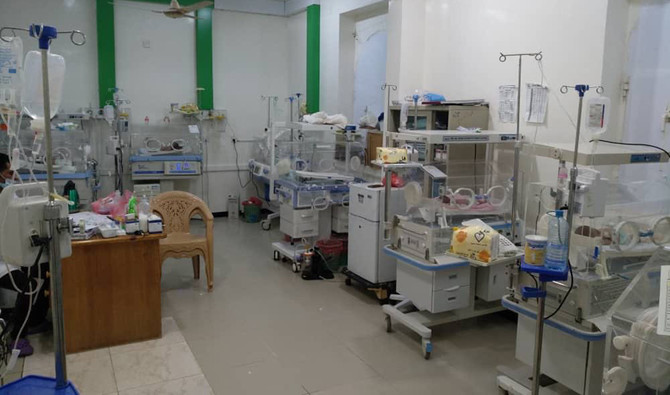
- The KSRelief is continuing to support medical services for Yemeni patients at Al-Salam hospital in Saada and Al Saudi hospital in Hajjah
Diriyah’s JAX District granted status of industrial heritage site
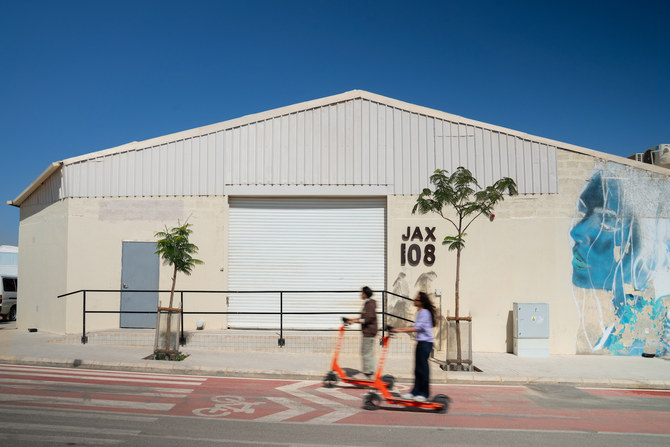
- Recognition by Saudi Heritage Commission honors the district for its role in the evolution of industry in the Kingdom and its role in shaping society
- District, named after the company that established it in the 1970s, contains a striking assembly of warehouses
- When commercial tenants moved out of the district in the mid-2000s, artists moved in
RIYADH: Saudi Arabia’s Heritage Commission has designated Diriyah’s JAX District, near Riyadh, as an industrial heritage site.
Its industrial days behind it, the district is now known as a creative arts hub in the heart of Diriyah, which is also where the UNESCO world heritage site of At-Turaif can be found.
The official recognition of its past role falls under the aims of the Industrial Heritage Preservation Program to protect and celebrate places of historical significance to the industrial sector in the Kingdom.
The designation highlights the district’s unique industrial architecture, officials said, and gives it a place alongside other sites in the Kingdom recognized for their roles in the evolution of industry in the country and its role in shaping Saudi society. Granting it heritage site status pays tribute to its history as a center for large-scale industrial projects and underscores its position as a national cultural landmark, they added.
JAX, named after the company that established the district in the 1970s, is home to a striking assembly of large warehouses that once formed an important industrial center in Riyadh region.
In the mid-2000s, commercial tenants started to move out and a group of graffiti artists began to use the walls of abandoned warehouses as their makeshift canvas. Young artists also established workshops and studios in the vacated spaces. In the years that followed, additional creative spaces, including art galleries, studios and cafes, were established, major cultural institutions opened, and office space was built for creative agencies that set up shop there.
JAX District now hosts numerous events, including the Diriyah Contemporary Art Biennale, MDLBEAST XP Music Futures, the Hia Hub fashion, beauty and style conference, and light art festival Noor Riyadh. The Saudi Arabia Museum of Contemporary Art, the first museum of its kind in the Kingdom, is also located in the district.
European Chamber of Commerce opens in Riyadh
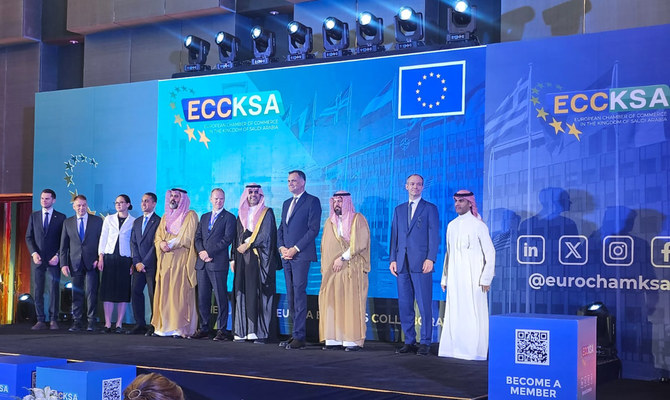
- ECCKSA to strengthen trade, investment, and economic cooperation
RIYADH: The European Chamber of Commerce in Saudi Arabia was inaugurated in Riyadh on Wednesday.
The launch event was attended by distinguished guests, including Ibrahim Al-Mubarak, assistant minister of investment; Luigi Di Maio, EU special representative for the Gulf; and Christophe Farnaud, the EU ambassador to Saudi Arabia, Oman, and Bahrain.
The chamber will serve as a platform to facilitate business cooperation, promote trade and investment, and support the alignment of regulatory frameworks, according to a press release from the EU.
In line with the strategic partnership between the EU and the Gulf Cooperation Council announced in May 2022, the establishment of the ECCKSA is a significant step in strengthening economic ties between the EU and the Kingdom.
Di Maio said that the establishment of the ECCKSA marks an important new chapter in the partnership between the EU and Saudi Arabia.
“I am convinced that this initiative will be key in bringing closer and in integrating our economies. The ECCKSA will certainly become a point of reference for European companies doing business in the Kingdom and Saudi companies looking for partners and markets in the EU.
"It will facilitate joint ventures and boost trade and investments. There is so much untapped potential and space to grow in our economic cooperation and I am confident that the next months and years will bring about more substantive and sustainable progress,” Di Maio added.
Al-Mubarak highlighted the integration of ECCKSA’s initiatives with Saudi Arabia’s Vision 2030, creating the potential for new business opportunities in non-oil sectors.
“The launch of the European Chamber of Commerce in Saudi Arabia marks a pivotal milestone in the flourishing economic partnership between the Kingdom and the EU. With foreign direct investment stock from Europe nearly doubling to SR218.5 billion ($58.26 billion) over the past five years, the establishment of ECCKSA will unlock new horizons for cross-border trade, investment, and collaboration.
“The chamber will be a catalyst for fostering stronger ties between our business communities and supporting Saudi Arabia’s economic diversification journey under Vision 2030,” he added.
The event also featured a panel discussion, titled “ECCKSA: Shaping the Future of EU-KSA Business Collaboration,” where experts discussed strategies for deepening economic ties and explored new opportunities for partnership.
The panel included Leon Delvaux, acting director at the EU; Lama Alghrair, director of investor intelligence at the Ministry of Investment; Thomas Juergensen, head of trade and economic affairs for Saudi Arabia, Bahrain, Oman, and Qatar; and Lorcan Tyrrell, ECCKSA chairman. They collectively outlined the anticipated impact of ECCKSA on the European and Saudi business communities.
Also at the launch, ECCKSA’s license was formally handed over by the Ministry of Investment in Saudi Arabia.
Kristijonas Gedvilas, CEO of ECCKSA, said that the chamber is dedicated not only to strengthening economic ties, but also to building a vibrant business ecosystem that supports the shared vision.
“Our immediate focus will be on expanding our membership, engaging businesses actively, and providing them with invaluable resources and opportunities that foster growth and innovation across both regions,” he added.
ECCKSA aims to advance initiatives that support its members while contributing to the economic prosperity of both regions.
Saudi Premium Residency Program hosts workshop in Riyadh
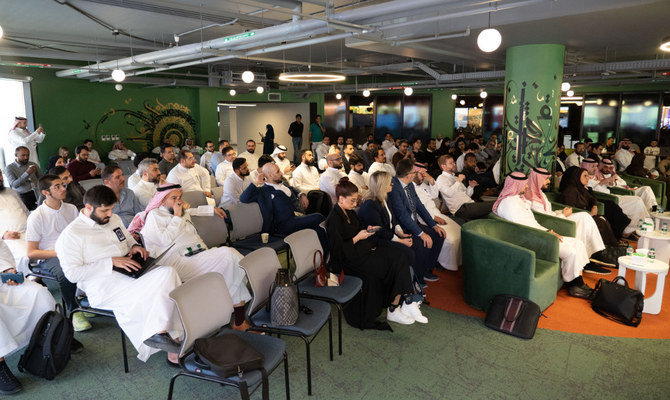
- The workshop also included networking and discussions on funding opportunities as well as mentorship
RIYADH: Saudi Arabia’s residency program attracting top foreign talent and investors hosted a workshop in Riyadh on Wednesday.
The Premium Residency Program, launched in 2019, draws skilled professionals, talented individuals and investors to the Kingdom through five residency categories.
It targets expatriates who wish to gain premium residency in Saudi Arabia.
The categories, announced in January, include special talent, gifted, entrepreneur, investor and real estate residencies.
The “Introduction to Premium Residency Products” at The Garage in Riyadh focused on the entrepreneur category.
The residency includes two sub-categories for entrepreneurs and innovators who contribute to the development of multiple industries in Saudi Arabia.
Category one of the entrepreneur residency provides a five-year premium residency. Applicants must obtain an entrepreneurial license from the Saudi Ministry of Investment and a letter of recommendation from the investing party.
They are required to obtain a minimum SR400,000 ($106,000) investment from a recognized organization and hold at least a 20 percent share of the startup.
After the five-year term, the entrepreneur residency will be renewed if the eligibility criteria is still met.
Category two grants a permanent residency only if the entrepreneur creates a minimum of 10 jobs in the first year and 10 or more in the second year.
The individual must demonstrate a minimum investment of SR15 million and a 10 percent ownership stake in the business.
The advantages of the entrepreneur residency include the ability to nominate two people from the applicant’s work team — such as executives — to obtain exceptional competence residencies.
Among the general benefits are owning and using real estate, issuing visit visas for relatives, and exemption from the financial fees imposed on expatriates and their companions.
Beneficiaries will be able to use the lanes designated for citizens and citizens of the Gulf Cooperation Council countries at ports across the Kingdom.
The holder of the premium residency and their family members can leave and return to Saudi Arabia without requiring a re-entry visa. They can also work in private sector establishments.
Sarah Al-Hamad, who attended the workshop, told Arab News: “I truly believe that the Premium Residency Program will drive economic growth and cultural exchange in the Kingdom for years to come.”
The workshop also included networking and discussions on funding opportunities as well as mentorship.
Jeddah Airports approves operational plan for King Abdulaziz Airport ahead of 2024 Hajj season
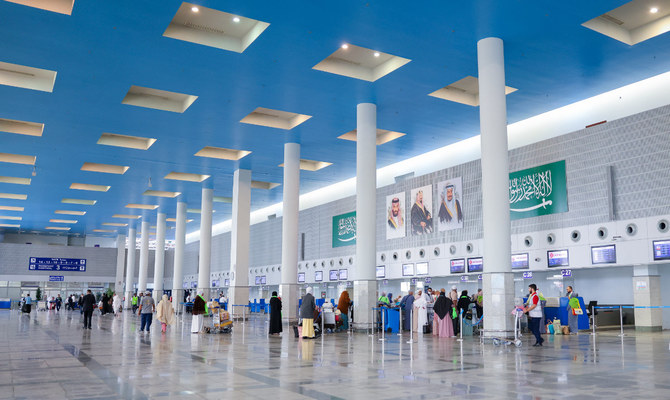
- The plan will be activated from the beginning of the sacred month of Dhul-Qdah, which starts on May 9, and will continue until all pilgrims have arrived
JEDDAH: Jeddah Airports has confirmed all three facilities and lounges at King Abdulaziz International Airport are ready to accommodate some 1.2 million pilgrims during the 2024 Hajj season.
CEO Mazen bin Mohammed Johar said the operational plan was meticulously aligned with all requirements aimed at ensuring the safety, security and comfort of pilgrims arriving via the airport.
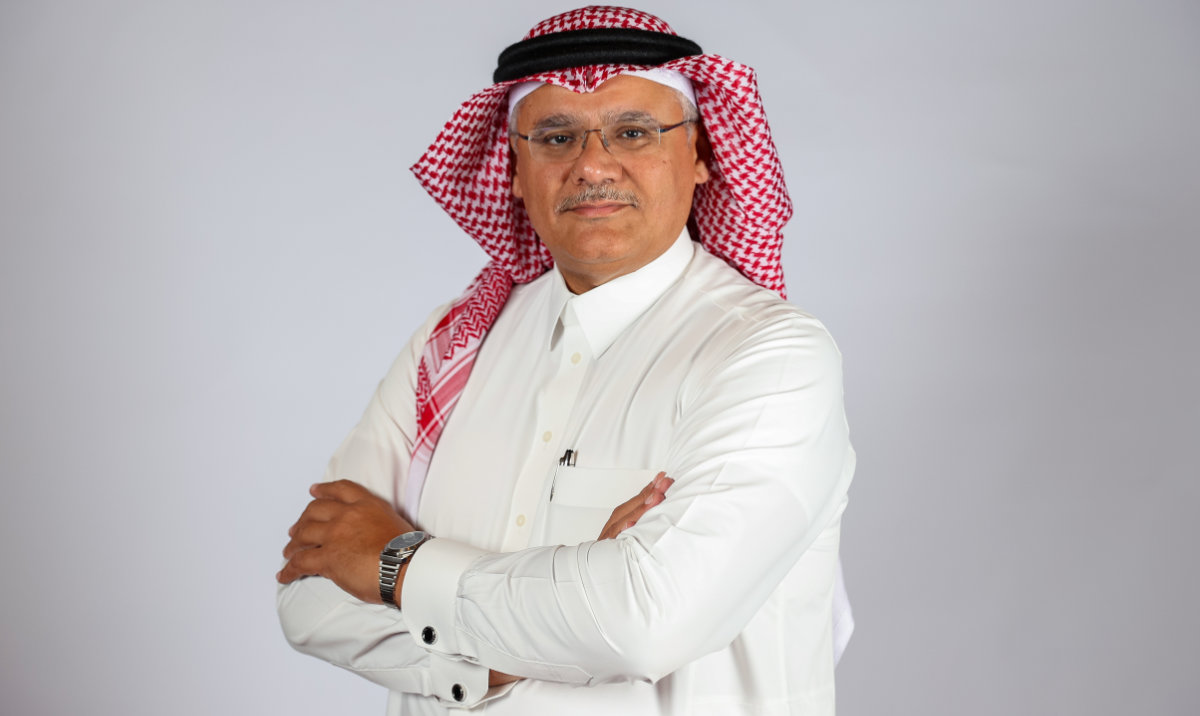
The plan will be activated from the beginning of the sacred month of Dhul-Qdah, which starts on May 9, and will continue until all pilgrims have arrived.
This will include the full operation of all airport lounges, including Terminal 1, the North Terminal, and the Hajj and Umrah lounge complex, following a standardized pattern of arrivals and departures throughout the season to effectively cater for all travelers.

Johar said the three halls collectively featured over 411 platforms for passport procedures, 440 for luggage check in, 56 loading bridges, 54 customs inspection devices, 29 luggage conveyor belts, 28 bus gates, and four health centers. There are also two areas dedicated to handling group luggage.
During the peak period, the workforce at King Abdulaziz International Airport will number around 16,000 employees from diverse governmental, security and operational sectors. All are committed to serving pilgrims and facilitating procedures during their journey of faith.
Saudi Arabia expands eVisa program to include Barbados, Bahamas and Grenada

- The expansion brings the total number of countries eligible for the eVisa program to 66
RIYADH: Saudi Arabia has expanded its electronic visa program to include citizens of three Caribbean countries: Barbados, the Bahamas and Grenada.
People from these countries can now apply, online or on arrival, for a visa to visit the Kingdom for the purposes of tourism, to perform Umrah, to attend events, exhibitions and conferences, or to visit friends and relatives, the Saudi Press Agency reported on Wednesday.
The expansion brings the total number of countries eligible for the eVisa program to 66. It is part of the efforts by Ministry of Tourism to enhance the Kingdom’s global connectivity, stimulate economic diversification, and help achieve the tourism goals of the Saudi Vision 2030 plan for national development and diversification. Those goals include an increase in the tourism industry’s contribution to gross domestic product of more than 10 percent of the total, and the creation of 1 million jobs in the sector.
The Ministry of Tourism introduced tourist visas in September 2019 as part of a broader initiative to showcase Saudi Arabia’s rich culture and heritage, encourage visitors from around the world to visit the country and engage with the rich cultural experiences on offer in the country, and promote international interactions. It is expected that the eVisa program will be further expanded to include more countries.





